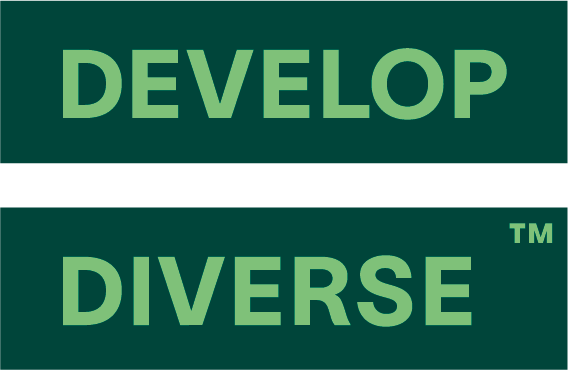EDI stands for Equity, Diversity, and Inclusion. It promotes fairness, celebrates diversity, and creates inclusive environments where everyone feels respected.
What is EDI?
Equity, diversity, and inclusion (EDI) represent a transformative approach to building a more inclusive and just society.
EDI is about acknowledging and valuing the uniqueness of individuals, creating fair opportunities, and foresting an environment where everyone feels respected, represented, and empowered.
It goes beyond surface-level efforts and seeks to address systemic inequalities and historical disadvantages faced by marginalized groups.
Understanding equity, diversity, and inclusion
Each element within EDI carries its unique significance, contributing to the transformative approach that celebrates the diversity of humanity while striving for fairness and belonging.
Each element of the abbreviation “EDI” is described below.
Equity
Equity is the foundation of EDI, being at the front of the abbreviation. It involves recognizing that each individual has different needs and experiences shaped by their backgrounds and circumstances.
To achieve equity, it’s important to level the playing field by providing additional support and resources to those who face systemic disadvantages – for instance, in the workplace. It is about ensuring that everyone has the opportunity to reach their full potential.
In various settings, such as the workplace, achieving equity involves providing additional support and resources to those who have historically encountered barriers of discrimination. By doing so, equity ensures that everyone has equal opportunities to reach their full potential, irrespective of societal factors that might hinder their progress.
Diversity
Diversity encompasses the broad range of human characteristics that make individuals unique.
This includes (but is not limited to) the following:
- Race
- ethnicity
- Gender
- Sexual orientation
- Age
- Religion
- Disability
- Socioeconomic background
Embracing diversity means recognizing and celebrating the richness of human experience and perspectives. By valuing diversity, we can increase the potential for greater creativity, innovation, and empathy within our communities.
Inclusion
Inclusion is the active practice of creating an environment where all people are respected, heard and fully engaged.
It involves dismantling barriers and prejudice that might prevent some individuals from participating fully. An inclusive environment fosters a sense of belonging, where everyone feels valued for who they are and what they bring to the table.
Inclusion is not merely extending an invitation; it is about cultivating an atmosphere of belonging. Inclusive environments empower individuals to thrive authentically, knowing their voices are valued and appreciated. It is a conscious effort to ensure that no one feels excluded or marginalized, leading to a sense of empowerment and commitment to the greater community.
Equity, diversity, and inclusion in the workplace
EDI plays a vital role in creating a more inclusive workplace.
By promoting diversity in hiring, organizations can cultivate an environment where every employee feels valued, heard, and empowered.
Here are some examples of how to implement EDI in the workplace:
- Diversity in hiring – such as using blind hiring practices.
- Establishing inclusive policies – such as implementing a fair pay policy.
- Offering training – such as unconscious bias training.
- Supporting career development – such as establishing formal mentoring initiatives.
- Nurturing inclusive leadership – such as providing training to develop leadership skills.
EDI vs DEI vs DEIB
EDI, DEI and DEIB are all acronyms representing concepts central to building inclusive and diverse environments.
The difference is the shift of emphasis in each element:
- EDI: Equity, diversity, and inclusion
- DEI: Diversity, equity, and inclusion
- DEIB: Diverse, equity, inclusion, and belonging.
While they share common goals, each abbreviation highlights specific aspects of fostering equitable, diverse, and inclusive spaces.
DEI (Diversity, equity, and inclusion)
DEI is a variant of EDI that shifts the emphasis to reckoning diversity first, followed by addressing equity and fostering inclusion:
- Diversity: Like EDI, DEI acknowledges and celebrates the richness of human differences, promoting the idea that diverse perspectives lead to greater creativity and innovation.
- Equity: Equity remains an essential aspect of DEI, ensuring that individuals receive the necessary support to overcome systemic barriers and achieve their full potential.
- Inclusion: Inclusion is the final element of DEI, focusing on creating environments where all individuals feel respected and included, enabling them to fully participate and contribute.
DEIB (Diversity, equity, inclusion, and belonging)
DEIB expands on EDI and DEI by adding the critical element of “belonging”, underscoring the importance of creating a sense of acceptance and celebration of individual identities:
- Diversity: Similar to DEI, DEIB values the richness of diverse backgrounds and experiences, recognizing the value it brings to the collective.
- Equity: DEIB acknowledges and addresses systemic disparities, providing resources and opportunities to uplift marginalized groups and ensure fair treatment for all.
- Inclusion: Inclusion is paramount in DEIB, as it actively cultivates an environment where all everyone feels heard and valued.
- Belonging: The added element in DEIB emphasizes the need to create spaces where individuals feel included and celebrate their unique identities, fostering a genuine sense of belonging.
The bottom line
EDI, DEI, and DEIB share common objectives of promoting equitable, diverse, and inclusive environments. But their sequencing and emphasis differ:
- EDI is a comprehensive framework that encapsulates the trio of equity, diversity, and inclusion.
- DEI shifts the order to prioritize diversity while maintaining equity and inclusion.
- DEIB goes a step further by highlighting the significance of belonging, creating spaces where every individual feels accepted and celebrated for their authentic selves.
